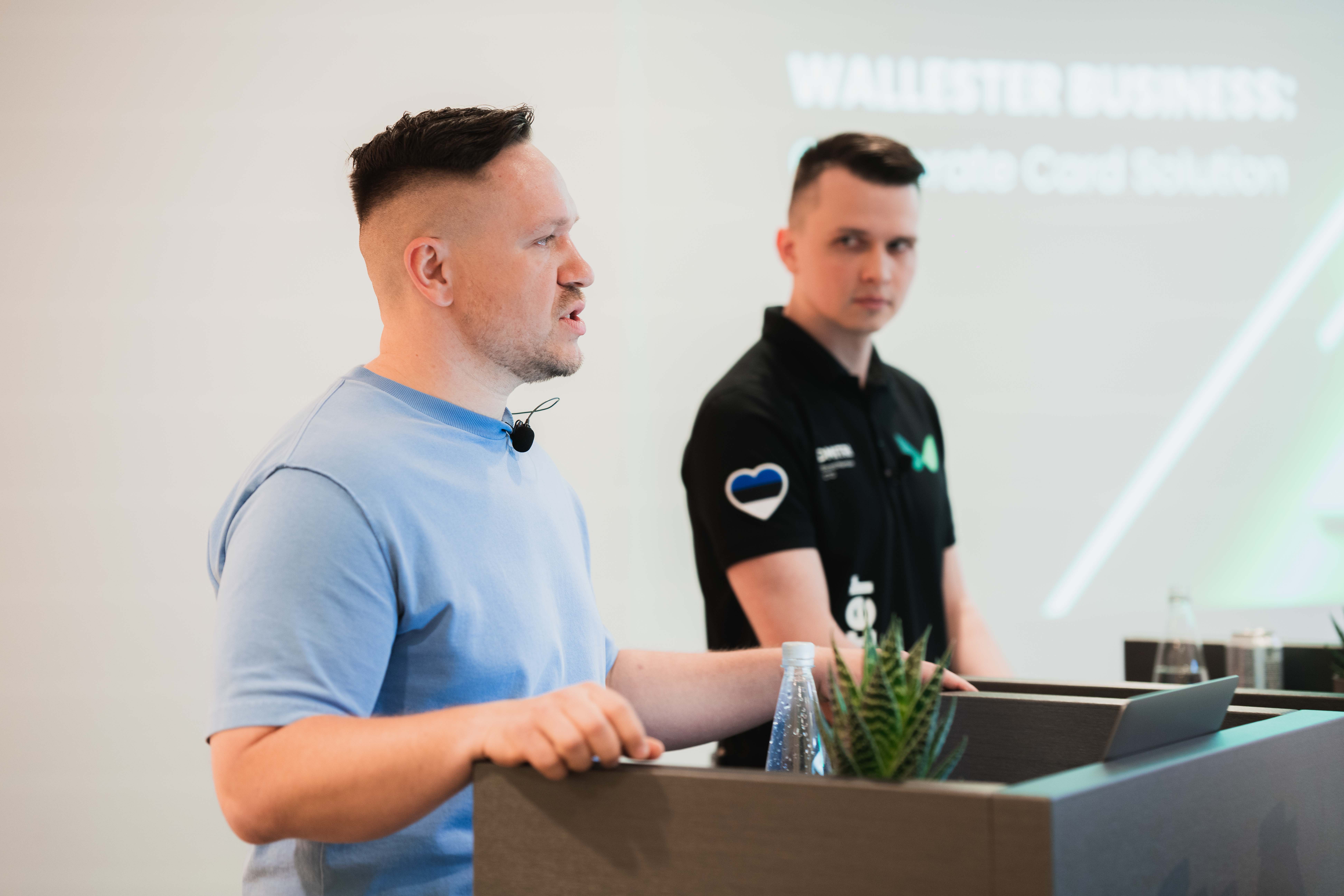White-labeling – when a manufacturer produces products that are sold under another brand's name – is a common practice in many industries. You might not even know that the t-shirt you're wearing or the app you're using on your phone is actually made by another company. Similarly, you're probably using a payment card that is actually issued by a third-party financial institution.

Payment card white-labeling means that the issuer has granted the use of its banking product – physical or digital cards, CRM systems, and other components – to another company, usually operating in the financial and banking industry.
There are many reasons a company could be interested in creating their own payment cards, ranging from simplifying processes related to outgoing payments to adding an additional revenue stream and boosting brand recognition. The problem, however, is that this process is complex, requires extensive in-house human resources, and includes contracting with dozens of different institutions.
Putting the many puzzle pieces together
The Estonian fintech Wallester is on a mission to change the long and complex process of payment card white-labeling.
Wallester is a Visa Principal Member, which makes it a licensed Visa card issuer. The company has built a one-stop solution for payment card white-labeling and offers to take care of every step of the process, from all things legal to card design and manufacturing. As a result, businesses can launch branded digital cards in as quickly as one month, while physical cards – in three.
Such fast-track white-label payment card issuance is possible because Wallester is an official Visa partner and FinTech Fast Track Member, which means it's provided with dedicated support and an accelerated timeline. What also helps is that Wallester has built its platform from scratch, which allows them to do everything in-house, while others must outsource the majority of services.
''Our mission is to make the accessibility of banking cards easier than ever,'' notes Wallester's COO Dmitri Logvinenko.
Currently, Wallester's solution is mainly used by companies in the financial and banking industry, but it's also available for non-financial organizations, like online marketplaces, travel agencies, gig platforms, and more. Wallester issues both personal credit/debit cards as well as company bank cards, and the brand has an option to set Visa Gold, Platinum, Signature, or Infinite Benefits for them.
Together with virtual and physical payment cards that can be connected with mobile payments such as Apple Pay, Google Pay, Samsung Pay, and others, Wallester also provides its clients with:
- a CRM for payment processing and managing issued cards
- an API to integrate payment functions within their platform
- a white-label app that can be downloaded from App Store and Google Play.
Helps companies control individual spending, too
An additional service Wallester offers is a corporate card solution, Wallester Business – a service that includes a platform that allows companies to manage corporate expense cards they've issued to employees and oversee their spending.
The ACFE Global Fraud Study found that 5% of a typical organization’s annual revenue is lost due to expense fraud, ranging from purchases for personal use with the company's money to out-of-policy airline seat upgrades. Wallester Business helps to prevent such unauthorised spending.
Wallester Business not only makes it possible to separate each individual business card from the company's shared bank account but also allows setting spending limits and restrictions on where the card can be used.
For example, a company that employs truck drivers and has issued them payment cards to allow them to cover their daily expenses can set a restriction that the card can only be used at gas stations and hotels, but not in bars or online shopping sites. This way, the company has more control over its money.
What makes Wallester Business different from similar services is that it provides an API, which makes it an open-loop solution. As a result, customers can fully integrate the whole Wallester product into their existing platform. Additionally, Wallester offers a mobile app for easier access to the cards issued.
Besides corporate expense card issuing and expense control, Wallester Business has a number of other features, such as:
- Payment approvals – confirming employees' purchase requests
- Media buying – instant issuance of virtual cards for purchasing online advertising
- Invoicing – an option to upload invoices via app for accounting
- Budget management – an integrated accounting service
- Reports for detailed information on all corporate expenses
- Visa Platinum Benefits – rewards for employees and the company, such as access to lounges when you travel, Visa Luxury Hotel discounts, and more.
Expansion in Europe in process
Launched in 2016 and having received its Payment Service Provider's (PSP) license in 2021, Wallester is now quickly expanding across Europe. The platform currently has more than 150,000 active users across 15 countries. Altogether, Wallester can be used in 31 countries across the EU, UK, and Switzerland.
"By partnering with Visa, our aim is to bring Wallester solutions to the businesses and companies all around the world," explains Wallester CEO and Co-owner Sergei Astafjev.

The company's clients are any business that uses corporate payment cards. According to Wallester, its potential market size in the EU alone is 10 million companies with over 100 million prospective cardholders. The fintech's revenue model is based on issuing and processing cards.
"While our Visa white-label solution is more for financial organizations, with Wallester Business we aim to expand our services to partners and customers outside of the financial world. Our goal is to offer a seamless turnkey solution for all our partners as we are steadily finding our path and place in the embedded financial services niche," says Astafjev.
In 2017 Wallester raised a €2 million Pre-Seed round, then in 2020 – a €5 million euro Seed round. The company is now looking to raise a Series A round with a goal to reach €50 million in investment.




Would you like to write the first comment?
Login to post comments